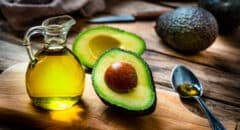
During menopause, significant changes occur in a woman’s body, with one of the most critical transformations being in cholesterol levels. According to a recent study presented at the European Society of Cardiology’s annual meeting, menopause is associated with a rise in “bad” LDL cholesterol and a decrease in “good” HDL cholesterol. These changes may elevate the risk of cardiovascular disease, particularly coronary artery disease, the leading cause of death in women.
Given that heart disease causes 40 percent of all female deaths, understanding the relationship between menopause, cholesterol, and heart health is vital for women approaching or experiencing menopause. This article will delve into the study’s findings, explain why menopause may raise heart disease risks, and offer practical tips to help you protect your cholesterol levels and reduce your heart health risks.
Menopause, Cholesterol, and Heart Disease: What the Research Says
Heart disease tends to affect women later in life than men, often after menopause. However, women’s risk of heart disease rises significantly during and after menopause. A new study involving over 1,200 women found that menopause is linked to detrimental changes in cholesterol levels:
- LDL Cholesterol (Bad Cholesterol): The study showed that “bad” LDL cholesterol increased by 8.3 percent from menopause to postmenopause. LDL cholesterol can contribute to plaque buildup in the arteries, increasing the risk of coronary artery disease.
- HDL Cholesterol (Good Cholesterol): Conversely, “good” HDL cholesterol declined by 4.8 percent postmenopause. HDL cholesterol is crucial because it helps remove excess cholesterol from the bloodstream, offering protective effects against heart disease.
- Comparison to Men: Women transitioning into menopause saw a dramatic 213 percent increase in LDL cholesterol compared to men, emphasizing the unique challenges women face during this phase of life.
These findings underscore that menopause is more than just a transition in reproductive health; it also signals significant cardiovascular changes. Dr. Stephanie Moreno, one of the study’s researchers, noted that menopause leads to an adverse lipoprotein profile, which could explain the rising incidence of cardiovascular disease in postmenopausal women.
RELATED: Why Black Women Should Consider a Menopause Retreat
Why Cholesterol Changes Matter
Cholesterol is a type of fat found in your blood that your body needs in small amounts for various functions, such as building cells. However, too much LDL cholesterol can cause it to stick to the walls of arteries, forming plaque. This plaque narrows arteries, restricting blood flow, which can lead to serious heart conditions such as heart attacks or strokes.
On the other hand, HDL cholesterol acts as a cleaner, transporting cholesterol away from the arteries and back to the liver, where it’s processed and eliminated. When HDL levels drop, the body loses part of this crucial protective mechanism, leaving arteries more vulnerable to damage and blockages.
For women going through menopause, the dual impact of rising LDL cholesterol and falling HDL cholesterol can set the stage for more severe cardiovascular problems.
Tips to Protect Your Cholesterol During and After Menopause
Fortunately, lifestyle changes can have a significant impact on cholesterol levels and overall heart health. Here are some expert-backed tips to help you manage cholesterol levels as you transition through menopause:
1. Adopt a Heart-Healthy Diet
A diet rich in whole foods, fiber, and healthy fats can help improve cholesterol levels:
- Focus on Plant-Based Foods: Fruits, vegetables, whole grains, legumes, and nuts contain fiber, which helps reduce LDL cholesterol.
- Include Healthy Fats: Incorporate sources of unsaturated fats like olive oil, avocado, and fatty fish (rich in omega-3s) to help boost HDL cholesterol and reduce inflammation.
- Limit Saturated and Trans Fats: Red meat, full-fat dairy, and processed foods can raise LDL cholesterol. Opt for lean proteins like poultry or plant-based alternatives.
2. Exercise Regularly
Physical activity is a powerful tool for managing cholesterol and heart health:
- Cardio Activities: Activities such as walking, jogging, swimming, or cycling for at least 150 minutes a week can help raise HDL cholesterol and lower LDL cholesterol.
- Strength Training: Incorporating resistance exercises at least twice a week can further support heart health and overall well-being.
3. Manage Your Weight
Excess weight, particularly around the abdomen, can increase LDL cholesterol and lower HDL cholesterol. Losing even a small amount of weight can have a significant impact on cholesterol levels and reduce the risk of heart disease.
4. Quit Smoking
Smoking lowers HDL cholesterol and damages blood vessels, increasing the risk of heart disease. Quitting smoking can quickly improve your heart health, raising HDL levels and lowering your risk of cardiovascular complications.
5. Limit Alcohol Consumption
While moderate alcohol intake (especially red wine) is sometimes associated with heart health, excessive drinking can raise triglycerides, another type of blood fat that increases the risk of heart disease. Stick to moderate drinking—up to one drink per day for women—or consider avoiding alcohol altogether.
6. Consider Medication
If lifestyle changes are not enough to manage cholesterol levels, medications like statins may be necessary. Speak with your healthcare provider about whether cholesterol-lowering drugs are right for you. Early intervention could help prevent heart disease down the road.
Menopause is a time of major change for women, and it brings with it an increased risk of heart disease due to shifts in cholesterol levels. However, with a proactive approach that includes heart-healthy eating, regular exercise, and monitoring cholesterol levels, you can significantly reduce your risk of cardiovascular problems.
Awareness of the changes that occur during menopause allows you to take control of your heart health and protect yourself against heart disease. By adopting healthy lifestyle habits and seeking medical advice when necessary, you can manage your cholesterol levels and enjoy a healthier life through and beyond menopause.








